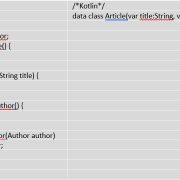Программирование courses
Содержание:
- About this Course
- About this Course
- Why is Online Teaching Important + Open and Institutionally Supported Technologies
- Planning Online Learning + Online Learning Activities
- Renaissance Learning and Unlocking Your Potential
- About this Course
- What is Learning?
- Engaging and Motivating Students + Evaluation Strategies
- Online Assessment Strategies + Online Resources
About this Course
79,528 recent views
Are you an educator? Have you ever wanted to understand more about how to design your class to make better use of educational technology – whether fully online or in blended contexts? Would you like to learn from those who have extensive practical experience with online technologies?
The Learning to Teach Online (LTTO) MOOC will help you develop a working understanding of successful online teaching strategies that you can apply in your own practice. The course is based upon the multi award winning open educational resource developed by Dr Simon McIntyre and Karin Watson.
Integrating online technologies into your teaching can be a challenging prospect, and it can be difficult to know how to approach it effectively for the benefit of both students and yourself. No one knows your own content and teaching strengths better than you, and the “one size fits all” formula doesn’t always suit everyone. No matter what type of technology you are interested in exploring or your level of experience, this course will help you draw on your teaching strengths and find the approach that is right for you, your students and your educational context.
This course will guide you through your journey of understanding how online technologies can enhance your course design. You will have the opportunity to develop your understanding of effective online teaching practices and their relationship to the use of different technologies. You will also be encouraged to progressively design and reflect upon your own online learning activity, assessment or resource for use in your own class if you choose to undertake the course assignments.
Flexible deadlines
Flexible deadlines
Reset deadlines in accordance to your schedule.
Shareable Certificate
Shareable Certificate
Earn a Certificate upon completion
100% online
100% online
Start instantly and learn at your own schedule.
Beginner Level
Beginner Level
Hours to complete
Approx. 18 hours to complete
Available languages
English
Subtitles: Arabic, French, Portuguese (European), Italian, Vietnamese, German, Russian, English, Spanish
About this Course
20,327 recent views
This course introduces the key principles and goals of modern neurolinguistics. Neurolinguistics is a science that incorporates methods and paradigms of linguistics and neuroscience.
This course discusses the main units and organizational principles of the human nervous system that underlie our language capacity. You will learn about the neurophysiological aspects of first and second language learning, discover clinical research in speech, reading and writing disorders, and also find out about speech disorders accompanying various psychiatric conditions. The course includes information on the history of neurolinguistics, modern techniques and methods of neurolinguistic research, and also provides detailed examples of several recent studies in the field.
The outline of the course
Module 1 introduces you to the main ideas and history of neurolinguistics. In this module you will learn how the human brain is organized and which cortical areas provide the basis for our language capacity. It also touches upon neuroevolution and the differences between the human brain and the brains of other mammals.
In Module 2 you will learn about modern methods and techniques of neurolinguistic research, such as EEG, MEG, intracranial EEG, evoked and induced potentials.
Module 3 continues the discussion of neurolinguistic research methods, introducing you to the fMRI method. It also provides examples of three recent neurolinguistic studies, detailing every stage: how the experiments were planned and conducted, and how the data was analysed.
Module 4 discusses how children learn their first and second languages. It also touches upon the differences in the ways monolinguals and bilinguals process linguistic information.
Modules 5 and 6 deal with clinical research in neurolinguistics. In Module 5 you will learn about aphasia. We will discuss the underlying causes of this disorder, its main types and different approaches to their classification and assessment. You will also learn about linguistic models based on aphasia data.
Module 6 continues the topic of clinical research in neurolinguistics. In this module you will learn about auditory hallucinations in schizophrenia, their causes and treatment. This module also discusses brain asymmetry with regards to language and dichotic listening as a means of studying brain asymmetry.
Module 7 is devoted to dyslexia and its comorbidities. This module will introduce you to four different approaches to dyslexia. You will also learn what longitudinal studies can tell us about dyslexia.
Why is Online Teaching Important + Open and Institutionally Supported Technologies
‘Module 1: Why is Online Teaching Important’ is about understanding where you are in the current educational landscape, and determining where you want to be. We will explore why online teaching is relevant to your teaching practice, and you’ll have an opportunity to reflect upon the opportunities and challenges you face in your own context. ‘Module 2: Open and Institutionally Supported Technologies’ focuses on helping you understand the benefits and restrictions of both broad categories of technologies. We’re all familiar with different social media technologies, and many of us will be aware of larger institutional online learning systems. In this module we will ask you to think about the reasons why you might want to use freely available online tools for your teaching — or your institution’s learning management system. Important considerations such as which types of technologies are suitable for a range of different activities will also be explored.
Hours to complete
4 hours to complete
Reading
12 videos (Total 54 min), 6 readings, 6 quizzes
See All
Planning Online Learning + Online Learning Activities
‘Module 3: Planning Online Learning’ will explore the importance of planning online learning from a pedagogical perspective rather than a technology driven one. Careful planning is one of the most important aspects of teaching online, and success often depends upon taking the time to consider all of the different aspects of the online learning experience before you begin. The content and activities will explore the concepts of constructive alignment, choosing which aspects of a class are best done online or face-to-face, building digital literacy capabilities within your students, and examining your own motivations for wanting to teach online in the first place. ‘Module 4: Online Learning Activities’ will identify important considerations you need to keep in mind when developing online learning activities for your students. We will offer advice about how to plan an online activity, and help you think about which may be appropriate for your own students. When you are new to the process, understanding which online technology best supports different learning activities can be daunting. This module, along with a range of case studies, and activities, will explore the relationship between different technologies and specific activities in more depth.
Hours to complete
3 hours to complete
Reading
16 videos (Total 101 min), 2 readings, 5 quizzes
See All
Renaissance Learning and Unlocking Your Potential
In this module we’re going to talk more about important ideas and techniques that will enhance your ability to learn. You’ll also discover how to more profitably interact with fellow learners, how to recognize your own strengths, and how to avoid the “imposter syndrome.” Fighter pilots and surgeons use checklists to help them with their critical duties—you can use a similar checklist to help you prepare for tests. Ultimately, you will learn more about the joys of living a life filled with learning!
Hours to complete
4 hours to complete
Reading
16 videos (Total 140 min), 3 readings, 3 quizzes
See All
About this Course
1,717,348 recent views
This course gives you easy access to the invaluable learning techniques used by experts in art, music, literature, math, science, sports, and many other disciplines. We’ll learn about how the brain uses two very different learning modes and how it encapsulates (“chunks”) information. We’ll also cover illusions of learning, memory techniques, dealing with procrastination, and best practices shown by research to be most effective in helping you master tough subjects.
Using these approaches, no matter what your skill levels in topics you would like to master, you can change your thinking and change your life. If you’re already an expert, this peep under the mental hood will give you ideas for turbocharging successful learning, including counter-intuitive test-taking tips and insights that will help you make the best use of your time on homework and problem sets. If you’re struggling, you’ll see a structured treasure trove of practical techniques that walk you through what you need to do to get on track. If you’ve ever wanted to become better at anything, this course will help serve as your guide.
This course can be taken independent of, concurrent with, or prior to, its companion course, Mindshift. (Learning How to Learn is more learning-focused, and Mindshift is more career-focused.) A related course by the same instructors is Uncommon Sense Teaching.
To join the fully translated Portuguese version of the course, visit: https://www.coursera.org/learn/aprender
To join the fully translated Spanish version of the course, visit: https://www.coursera.org/learn/aprendiendo-a-aprender
To join the fully translated Chinese version of the course, visit: https://www.coursera.org/learn/ruhe-xuexi
To join the fully translated French version of the course, visit : http://www.coursera.org/learn/apprendre-comment-apprendre
User
Learner Career Outcomes
Career direction
got a tangible career benefit from this course
Flexible deadlines
Flexible deadlines
Reset deadlines in accordance to your schedule.
Shareable Certificate
Shareable Certificate
Earn a Certificate upon completion
100% online
100% online
Start instantly and learn at your own schedule.
Beginner Level
Beginner Level
Hours to complete
Approx. 15 hours to complete
Available languages
English
Subtitles: Tamil, Arabic, French, Bengali, Ukrainian, Portuguese (European), Serbian, Chinese (Simplified), Greek, Italian, Portuguese (Brazilian), Vietnamese, Dutch, Estonian, German, Russian, Thai, Turkish, English, Hebrew, Spanish, Romanian, Persian, Hungarian, Polish
What is Learning?
Although living brains are very complex, this module uses metaphor and analogy to help simplify matters. You will discover several fundamentally different modes of thinking, and how you can use these modes to improve your learning. You will also be introduced to a tool for tackling procrastination, be given some practical information about memory, and discover surprisingly useful insights about learning and sleep. <br><br>(Please note that this module should only take about an hour—the extra time quoted relates to purely optional activities.)
Hours to complete
4 hours to complete
Reading
14 videos (Total 109 min), 5 readings, 3 quizzes
See All
Engaging and Motivating Students + Evaluation Strategies
‘Module 7: Engaging and Motivating Students’ explores various strategies for engaging and motivating your students in a range of different online learning scenarios. It discusses the important roles that curriculum design, activity structure, the relevance of the chosen technology, and effective time management play in creating an enthusiasm for learning in your students. ‘Module 8: Evaluation Strategies’ examines the importance of evaluating your online teaching practice to ensure that it is effective, and to give you an opportunity to constantly improve. This is especially important when you are first developing an online teaching practice, or when you are trying something new for the first time. We will explore an evaluation strategy based upon four reflective angles: self reflection, peer observations, student feedback, and theory. The module also introduces the concept of learning analytics as an informative tool to enable up to the minute evaluation of your online class.
Hours to complete
4 hours to complete
Reading
19 videos (Total 93 min), 2 readings, 6 quizzes
See All
Online Assessment Strategies + Online Resources
‘Module 5: Online Assessment Strategies’ discusses the notions of formative and summative assessment in online contexts. We will also explore benefits and considerations that you’ll need to keep in mind if you’re considering adopting an online assessment strategy in your own teaching, and how using technology can improve the efficiency and effectiveness of the assessment process. ‘Module 6: Online Resources’ discusses the benefits of using open educational resources (OER), and other online resources in your classes. We will also identify issues to be aware of when using resources that you discover, in terms of licensing and Creative Commons. You will be given the chance to explore several examples of online resources via the activities and associated resources for the module. How to evaluate the effectiveness and appropriateness of resources you find online is also explored.
Hours to complete
3 hours to complete
Reading
11 videos (Total 63 min), 2 readings, 5 quizzes
See All




